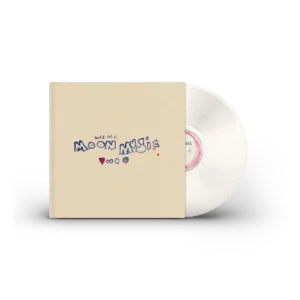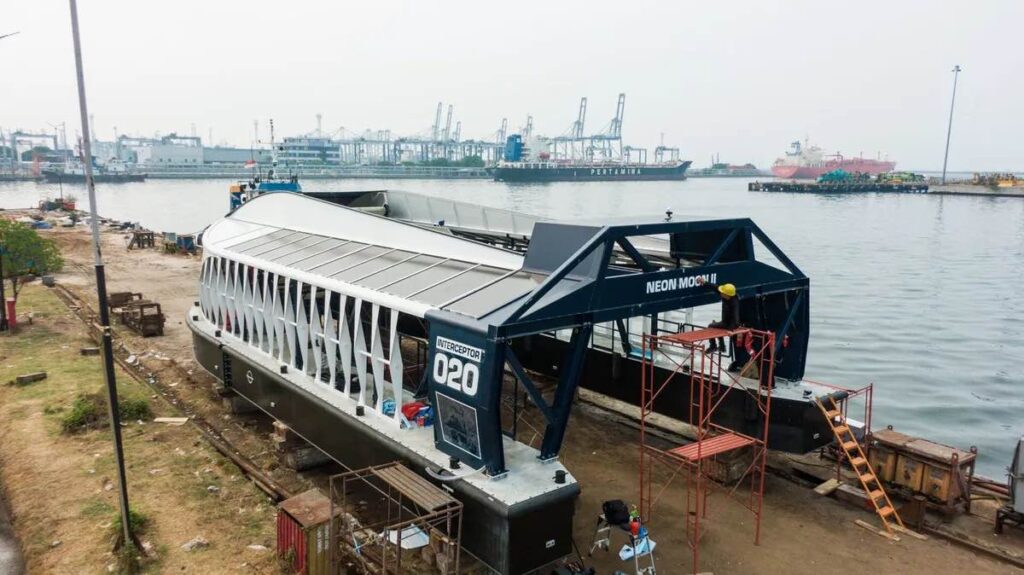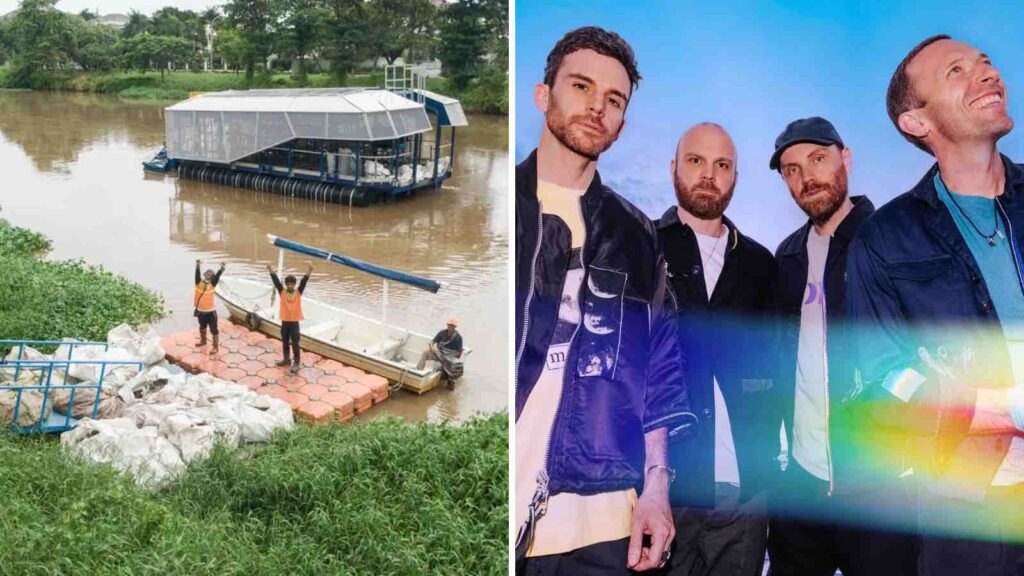Coldplay has released their tenth album, “Moon Music,” on vinyl made entirely from plastic waste collected from rivers in Indonesia and Malaysia. Each vinyl record of Moon Music is made from nine plastic bottles collected from these rivers, giving new life to discarded waste.
In a bold and innovative move that intertwines music with environmental activism, Coldplay has released their tenth album, “Moon Music,” on vinyl made entirely from plastic waste collected from rivers in Indonesia and Malaysia. This world-first initiative is not only a testament to the band’s commitment to sustainability but also a powerful statement on the global plastic crisis.
RELEVANT SUSTAINABLE GOALS



From Rivers to Records
On October 4, 2024, Coldplay made music and environmental history with the release of their latest album, “Moon Music,” in a format unlike any other. The vinyl version of the album is crafted from recycled plastic waste collected from two of Southeast Asia’s most polluted rivers: the Cisadane River in Indonesia and the Klang River in Malaysia. Each 140-gram vinyl is made from the equivalent of nine PET plastic bottles, which were intercepted from the rivers before they could make their way to the ocean.
This groundbreaking project is part of Coldplay’s collaboration with The Ocean Cleanup, a non-profit organization founded by Dutch inventor Boyan Slat, which has been working to rid the world’s rivers and oceans of plastic waste since 2013. Coldplay’s investment in the project, and their use of the Interceptor system—solar-powered vessels that extract plastic waste from waterways—demonstrates the band’s long-standing commitment to environmentally friendly practices.
A Vinyl Revolution: The EcoRecord LP
“Moon Music” isn’t just another vinyl album—it’s a 140-gram EcoRecord LP, the first of its kind in the world. In an interview on QVC, Chris Martin, Coldplay’s frontman, explained how the album is helping to raise awareness about plastic waste in Southeast Asia. “Each vinyl is made from nine bottles of plastic that were pulled from rivers in Indonesia and Malaysia,” Martin said. “This is just one small way we can help clean up the planet while sharing our music.”
The vinyl, which retails for $39.99, is a limited-edition piece that embodies Coldplay’s mission to merge creativity with sustainability. And it’s not just the vinyl that’s eco-conscious: the CD version of “Moon Music” is made from 90% recycled polycarbonate, further underscoring the band’s dedication to reducing their environmental footprint.

Raising Awareness, One Vinyl at a Time
Coldplay’s involvement in the river cleanup project is part of a larger, ongoing initiative by The Ocean Cleanup to tackle plastic pollution in rivers—the primary source of oceanic waste. Interceptors, which are now deployed in six countries, including Malaysia and Indonesia, are designed to remove plastic waste before it enters the ocean. In Malaysia, Interceptor 002 is stationed behind the Masjid Bandar Diraja Klang, while Interceptor 005 is hard at work off Jambatan Parang in Port Klang.

These rivers, like many around the world, are major contributors to the ocean’s plastic problem. By capturing plastic waste at the source, The Ocean Cleanup aims to drastically reduce the amount of debris that flows into the oceans each year. Coldplay’s investment in these technologies amplifies their commitment to raising awareness about the global plastic crisis, particularly in Southeast Asia, where plastic pollution in waterways has reached critical levels.
Partnering with Max Martin, who also produced their previous album “Music of the Spheres,” Coldplay has once again found a way to fuse artistry with environmental responsibility. This innovative use of recycled plastic for vinyl production could pave the way for other artists to follow suit, blending creativity with activism to tackle pressing global issues.
As Boyan Slat, founder of The Ocean Cleanup, has pointed out, stopping plastic waste in rivers is a critical part of preventing ocean pollution. “Eighty percent of the plastic in the oceans comes from rivers,” Slat said. “If we can stop it here, we can significantly reduce the amount of waste that ends up in our seas.”
Lead image courtesy of The Ocean Cleanup and Coldplay
You may also be interested in :
Emerging Markets Receive Only 6% of Global Plastic Waste Investments, Report Finds





